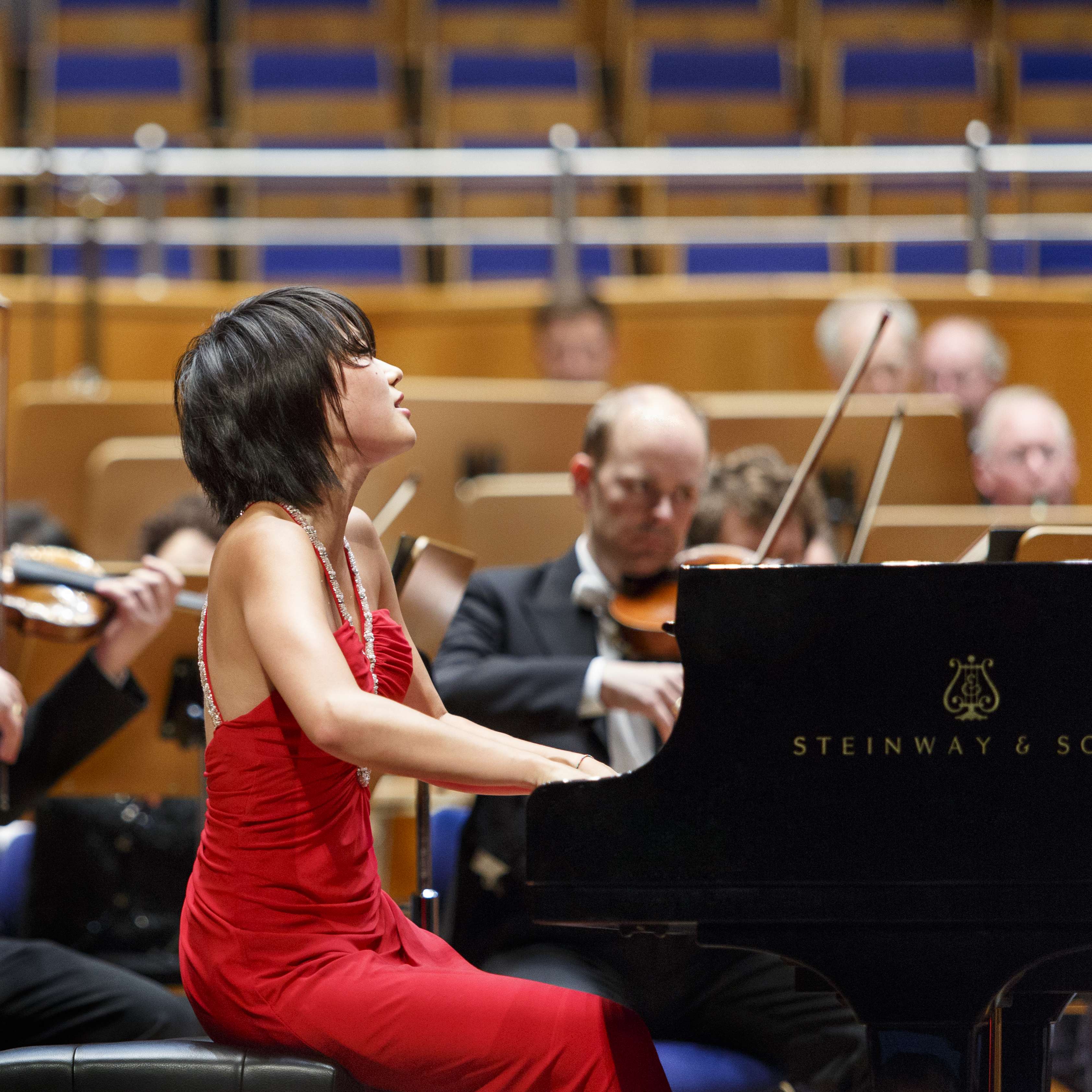|
Back
Another success for Yuja Wang Toronto
Koerner Hall
10/27/2013 -
Fryderyk Chopin: Piano Sonata No. 3 in B Minor, Op. 58 –Nocturne in C Minor, Op. 48 No. 1 – Ballade No. 3 in A-flat Major, Op. 47
Sergei Prokofiev: Piano Sonata No. 3 in A Minor, Op. 28
Nikolai Kapustin: Variations for Piano, Op. 41
Igor Stravinsky: Trois Mouvements de Petrouchka
Yuja Wang (piano) 
Y. Wang (© Susanne Diesner)
Pianistic dynamo Yuja Wang delighted a capacity audience with a varied program that displayed both her pyrotechnical abilities and her more poetic side.
The recital got off to a lively start with Prokofiev’s Piano Sonata No. 3, a short, bracing work that turned out to provide a contrast to the more probing, introverted work to follow, the Chopin Piano Sonata No. 3. Here I felt she could have brought more contrasts of light and shade into the first movement, but the following scherzo was a total delight with feather-light right hand playing over a friendly but strict Bachian rhythm. The largo was thoughtful and multi-layered and the finale totally persuasive. Local piano mavens were out in force and there were many lively discussions during the intermission. (Verdict: Ms Wang is polarizing.)
The second half opened with Nikolai Kapustin’s Variations for Piano, Op. 41. The composer (born in 1937) is Russian (Moscow Conservatoire trained) with a predilection for jazz. This work, composed in 1984, opens with a lot of bouncing, cool-cat, jiving jazz (à la Oscar Peterson perhaps), then has a warm rather lush section (à la Rachmaninoff?), then a headlong rush to a showbiz finish. A lot of fun, actually.
The two shorter Chopin works followed. Ms Wang managed to forestall applause after the moody Nocturne No. 1 - a good move as she could then move directly into the subtleties of the Ballade No. 3.
I see that, in my program, I scribbled the phrase “liquid but not languid”. This sums up Yuja Wang’s approach to Chopin, at least as afar as this program revealed. The subtleties are always underlain by a muscular energy.
The final work took us back to extroverted theatricality with Three Movements from Petrouchka arranged by Stravinsky in 1921 from his landmark ballet score of 1911. Ms Wang treated us to an appropriately vigorous romp through the pungent score, capturing all its abrupt changes of pace.
The applause was predictably tumultuous and we were treated to two encores: Dimitri Shostakovich’s pixilated variations on Vincent Youmans’ “Tea for Two”, and an arrangement of Sergei Rachmaninoff’s wistful “Vocalise”.
Michael Johnson
|